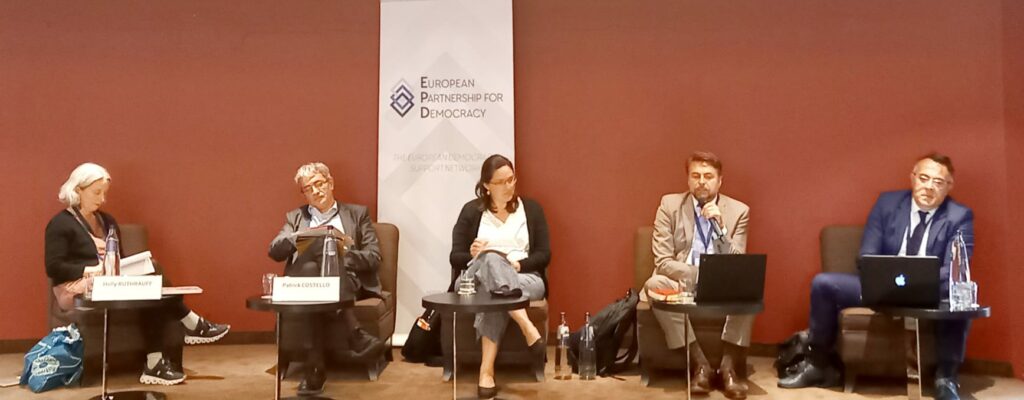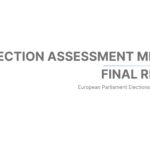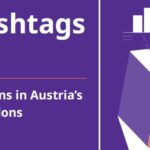
EPD’s annual conference focused on pressing democracy topics
Brussels, 20-22 June 2022: European Partnership for Democracy (EPD) member Election-Watch.EU joined the annual EPD conference from 20 – 22 June 2022 in Brussels. The in-person conference titled “What now? Supporting democracy and improving coordination in a new era” brought together practitioners, academics, and EU policy makers as well as EPD members.
Democracy in the European Union is in a state of flux in the run-up to the 2024 European Parliament elections. The recently concluded Conference on the Future of Europe has reinvigorated calls for treaty changes to introduce EU-wide electoral lists and more elected offices to the EU, while the launch of Article 7 sanctions procedure against Hungary for its violations of the rule of law represents the start of a new chapter for democracy in the EU.
Following an opening address by EPD Executive Director Ken Godfrey a panel including Anthony Smith, Chief Executive of the Westminster Foundation for Democracy, Iryna Yefremova, Deputy Head of Mission of Ukraine to the European Union and Kelly Adams-Smith, Deputy Chief of Mission at the U.S. Mission to the European Union discussed the ongoing war of Russia against Ukraine and its critical juncture for democracy in the world. As Ukraine defends its right to self-determination and freedom, it has become a symbol of the fight between democracy and dictatorship and has renewed the importance of democracy as a priority of EU foreign policy.
Another panel including European Parliament Vice President Heidi Hautala, Vice-President of the European Parliament and EPD President Antonella Valmorbida, Secretary-General of the European Association for Local Democracy (ALDA) discussed if these developments bring meaningful change to European democracy, and where the future of democracy in the EU will lead next.
Election-Watch.EU was invited to participate in a panel on the theme “How to unrig an election? Electoral support in hybrid regimes“. Hybrid regimes represent a challenge for democracy support for multiple reasons: the legitimisation of power through controlled and manipulated elections; restrictions to freedom of organisation and expression (although formally recognised); and the slow weakening of political opposition, media and civil society through the curtailing of different stakeholders’ linkages with government institutions and representatives.
These challenges are not exclusively confined to any geographical region of the world – they are widespread and thus merit a robust response. In the EU, the recent elections in Hungary have laid bare developments widely noted over the last decade: elections are not rigged on the day of the vote, but may be manipulated over many months and years to favour certain political parties and interests.
Supporting electoral integrity under such circumstances provides challenges for democracy practitioners, donors and civil society, with important bearings for democracy support overall. What are the responses that democracy supporters can take to support democratic elections? How can we better observe elections in hybrid regimes? What lessons are there from recent Election Observation Missions of the EU and others which provide insights on how to update the pro-democracy toolkit that can be used inside the EU and as part of external action?
This session, moderated by EEAS Head of Division for Democracy and Electoral Observation Patrick Costello, included Election Observation and Democracy Support (EODS) Team Leader Holly Ruthrauff, Democracy Reporting International (DRI) Programme Director Nicola Schmidt, EDGE Senior Advisor Domenico Tuccinardi and Armin Rabitsch from Election-Watch.EU.
The panel aimed to tackle the following topics:
- How to better monitor the conduct of elections in hybrid regimes;
- How to more effectively push elections in such contexts in a more pro-democratic direction;
- Explore ideas for how to bridge internal and external work on elections to ensure electoral integrity within the EU based on lessons from electoral support elsewhere.
In a concluding panel Chiara Adamo, Acting Director for Human Development, Migration, Governance and Peace, DG International Partnerships, European Commission, Christian Leffler, former Deputy Secretary-General, European External Action Service, and Gary Klaukka, Executive Director of Demo Finland discussed how to make the new “Team Europe Democracy” work and enhance cooperation in democracy promotion.
The Team Europe Democracy initiative was recently launched as a part of the Team Europe approach for cooperation between the EU institutions and EU Member-States. This initiative promises to advance the development of common approaches to supporting democratisation globally and to open up possibilities for closer collaboration and new forms of multi-country partnerships on projects on larger scales – both geographically and thematically. This session will explore the opportunities and challenges of cooperation under Team Europe Democracy for building stronger partnerships to improve accountability, political participation, and media freedom across the world.
The EPD annual conference was preceded by an EPD board meeting and succeeded by an EPD programme working group meeting in which Election-Watch.EU participated.
democracy conference, democracy support, EPD, EPD annual conference
 Election Assessment Mission Report with good practice examples published
Election Assessment Mission Report with good practice examples published
 Supporting Electoral Reform in Liberia
Supporting Electoral Reform in Liberia
 Presenting Electoral Reform Paper at the Electoral Integrity Project Conference
Presenting Electoral Reform Paper at the Electoral Integrity Project Conference
 Social media monitoring of Austria’s general election campaign
Social media monitoring of Austria’s general election campaign
 How best to assess hybrid threats in elections?
How best to assess hybrid threats in elections?